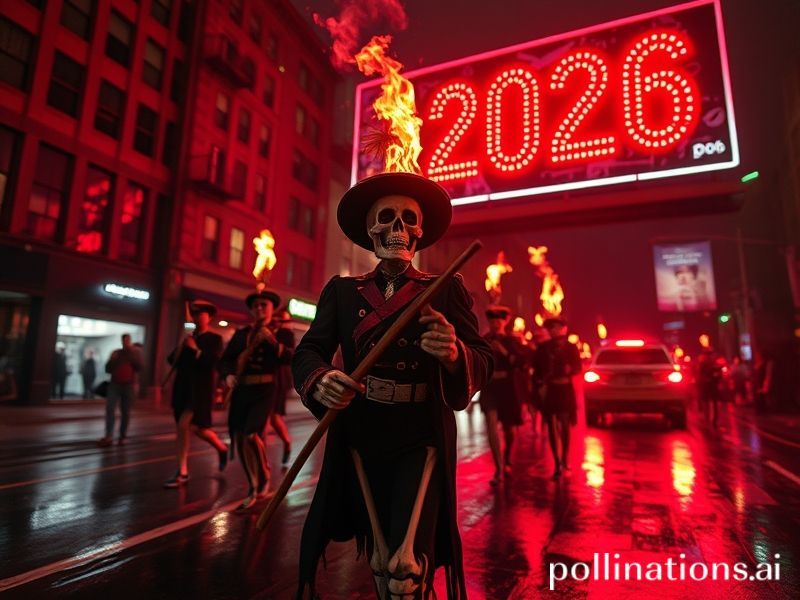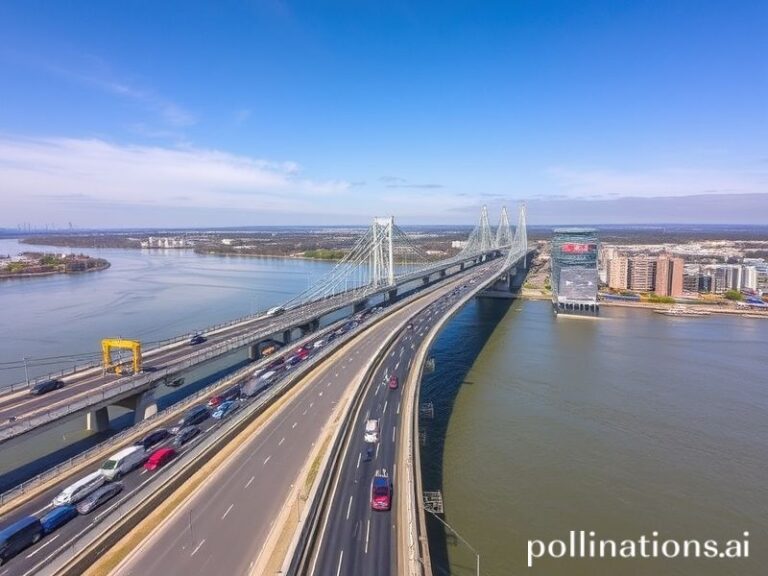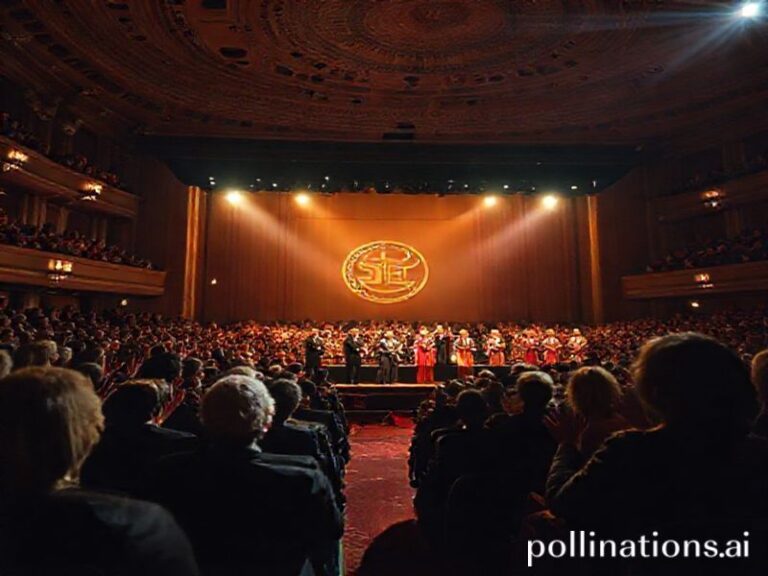Global Emo-nomics: How My Chemical Romance’s 2026 Black Parade Became a Geopolitical Power Move
The Black Parade marches again—only this time the horses are on lithium, the uniforms are rented from Shein, and half the marching band is livestreaming from a basement in Manila. My Chemical Romance announced their 2026 world tour, “Welcome to the Black Parade: Redux,” and the planet responded with the sort of coordinated hysteria usually reserved for alien landings or free bread. From São Paulo to Seoul, fans who once used eyeliner to scare suburban parents now use it to hide Zoom fatigue. The tour is billed as “a global funeral for the end of irony,” which is ironic because the tickets sold out via blockchain in 11 minutes—faster than you can say “late-stage capitalism.”
In Mexico City, scalpers formed a literal queue around the Zócalo, each wearing surgical masks printed with Gerard Way’s 2006 face. Over in Lagos, the tour announcement broke WhatsApp voice-note length records previously held by coup rumors and unverified prophecies. Meanwhile, Berlin’s club kids—who spent the pandemic pretending warehouse raves were resistance movements—suddenly remembered that depression can be melodic. The EU even debated whether emo revival qualifies as cultural heritage, right after they finished arguing if feta is a cheese or a lifestyle.
The economic ripple is textbook post-postmodern absurdity. South Korea’s KakaoBank launched a “Black Parade Mortgage” with 0% interest for the clinically nostalgic; applicants only need to submit a photo of their old LiveJournal. Argentina, ever the avant-garde in fiscal ruin, saw the peso strengthen 3% the day tickets dropped, because international speculators mistook eyeliner exports for soy futures. And in a masterstroke of soft power, the U.S. State Department hinted that any country hosting the tour gets bumped up the semiconductor-alliance waitlist. Nothing says diplomatic leverage like promising a continent the chance to scream “I’m not okay” in unison.
Climate scientists, ever the life of the party, noted that the projected carbon footprint equals 400,000 transatlantic TikTok dances. To keep Greta Thunberg from rage-tweeting, the band pledged to power every stage with recycled teenage angst—harvested, presumably, from Reddit comment sections. Critics called it greenwashing; the band called it “existential offsetting.” Either way, ExxonMobil is rumored to be buying the naming rights to the encore.
Of course, the real spectacle is geopolitical. China’s censors pre-approved set lists but drew the line at “Cancer,” fearing it could be interpreted as commentary on industrial pollution. Russia, nostalgic for anything resembling a parade, offered Red Square gratis—Putin reportedly a secret fan since 2007, when Kremlinologists spotted a Revenge hoodie under his judo gi. And in a twist that would make Kafka blush, North Korea’s state media claimed Kim Jong-un invented emo in 1992, releasing classified photos of a pre-teen Dear Leader frowning at a birthday cake shaped like the imperialist West.
Back home, Gen Z TikTokers are lip-syncing in vintage coffins bought from Etsy; their Boomer parents, still scarred by the original 2006 tour, have formed support groups that meet in abandoned Circuit City parking lots. Therapists report a 40% spike in clients citing “return-to-emo dysphoria,” symptoms include uncontrollable quoting of Three Cheers and the delusion that skinny jeans still fit. Big Pharma is rumored to be fast-tracking a nostalgia blocker; side effects include spontaneous yodeling and the inability to recognize any song released after 2012.
So when the first notes of that funeral march echo across whichever dystopian amphitheater you’ve overpaid to enter, remember: the parade isn’t just black because of the eyeliner. It’s black because the planet, bankrupt of new ideas, is raiding its own wake for one last sing-along. And if the confetti cannons shoot tiny antidepressants instead of streamers, try not to look surprised. That would be far too on-brand for 2026.







